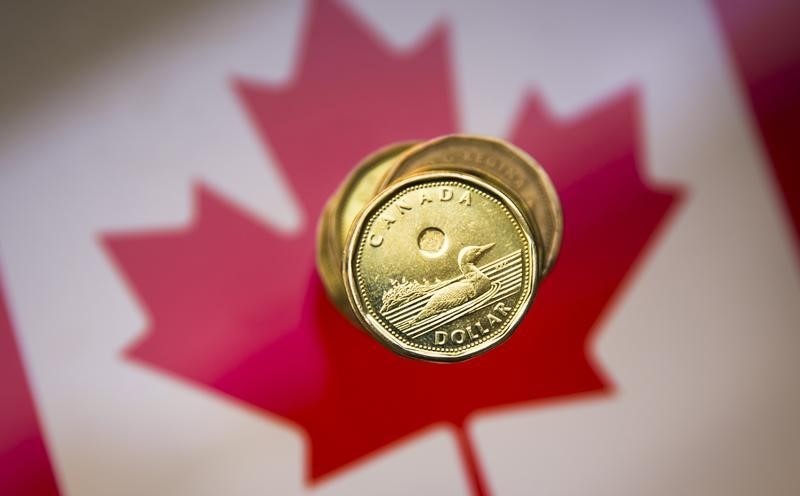* Canadian dollar at C$1.2989, or 76.99 U.S. cents
* Loonie touches its weakest since May 8 at C$1.2996
* The price of U.S. oil falls 2.1 percent
* Bond prices higher across the yield curve
TORONTO, May 28 (Reuters) - The Canadian dollar weakened to a nearly three-week low against its U.S. counterpart on Monday as oil prices fell and ahead of a Bank of Canada interest rate decision on Wednesday.
At 9:02 a.m. EDT (1302 GMT), the Canadian dollar CAD=D4 was trading 0.1 percent lower at C$1.2989 to the greenback, or 76.99 U.S. cents. The currency touched its weakest since May 8 at C$1.2996.
On Friday, the loonie had its biggest slide in more than two months as the price of oil, one of Canada's major exports, tumbled.
Oil extended its decline on Monday as Saudi Arabia and Russia said they may increase supplies while U.S. production gains show no signs of slowing. U.S. crude CLc1 prices were down 2.1 percent at $66.45 a barrel. U.S. dollar .DXY gained against a basket of major currencies after Italy's president set the country on a path to fresh elections, pressuring the euro EUR= . Foreign exchange trading volumes were low due to holidays in Britain and the United States. Bank of Canada will probably hold interest rates steady this week as uncertain trade policy and indebted consumers necessitate caution, but firmer price and wage inflation will prompt two increases in the second half of 2018, a Reuters poll predicted. this week, investors will weigh prospects for expansion of the Trans Mountain pipeline. As a hard deadline set by Kinder Morgan (NYSE:KMI) Canada Ltd KML.TO for scrapping the expansion looms, there is growing doubt among investors, contractors and government officials about reaching a deal to save the C$7.4 billion project. have boosted bearish bets on the Canadian dollar, data from the U.S. Commodity Futures Trading Commission and Reuters calculations showed on Friday. As of May 22, net short positions had increased to 26,212 contracts from 23,656 a week earlier.
Canadian government bond prices were higher across the yield curve in sympathy with German Bunds. The two-year CA2YT=RR rose 6.5 Canadian cents to yield 1.963 percent and the 10-year CA10YT=RR climbed 57 Canadian cents to yield 2.347 percent.
